Bobby Lennon’s Marbella United FC Focuses on Trials for Youth Players
A highly experienced veteran of the beautiful game, Bobby Lennon has played, coached and managed football in the USA for more than 40 years. Now with a player development program in Spain, Lennon has turned his attention to providing American youth players with opportunities to train and play abroad.
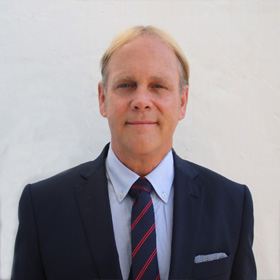
Youth Soccer News: A man with a focused dream of developing youth players, Bobby Lennon founded and coached the USL’s Richmond Kickers in 1993. Two years later, the Kickers were the first American team to win “the double”, lifting both the trophy for the US Open Cup and the PDL National Championship.
Inducted into the USL Hall of Fame in 2005, Lennon has coached the game at nearly every level. Four years ago, Lennon took his player development program to Marbella, Spain and Marbella United FC kicked off.
Recently, six players from Marbella United FC (MUFC) were offered professional tryout opportunities across Europe. Marbella United FC is entering into a partnership with the area’s professional soccer club, Marbella FC. Marbella FC U18’s play in the Spanish National League, which is the 2nd highest level in Spain where all the top clubs have their “B” teams compete — and this new partnership will provide additional exposure for American youths.
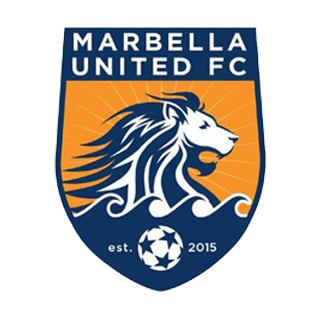 Player Agents organized tryouts for MUFC student-athletes in first, second and third division clubs in Belgium, Spain, Norway, Ukraine, Greece, and Romania. Senior players Tommy Buono (Winchester, Va), Gordon Bradley (Haymarket, Va.) John Rogers (Hicksville, NY) and MC Lopez (Dallas, Texas) who are all third-year players, have begun preparations for their summer trials.
Player Agents organized tryouts for MUFC student-athletes in first, second and third division clubs in Belgium, Spain, Norway, Ukraine, Greece, and Romania. Senior players Tommy Buono (Winchester, Va), Gordon Bradley (Haymarket, Va.) John Rogers (Hicksville, NY) and MC Lopez (Dallas, Texas) who are all third-year players, have begun preparations for their summer trials.
Another success story, San Francisco native, younger player Tarn Weir is now heading to Belgium’s first division club RSC Anderlecht starting next month.
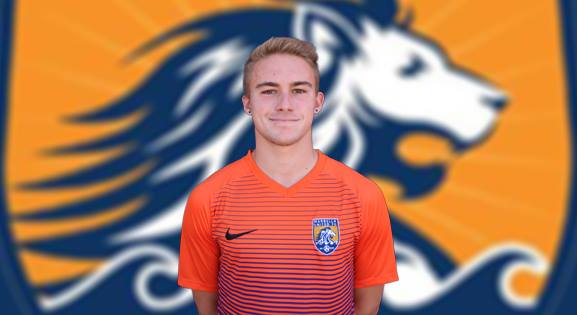
Here is Diane Scavuzzo’s interview with Marbella United FC’s Bobby Lennon:
Diane Scavuzzo: Why did you start Marbella United FC?
Bobby Lennon: I’ve been running programs my entire life. I was the founder of the Richmond Kickers, and then I started the Palm Beach Pumas, a college prep PDL program in 1999. We’ve been developing and creating opportunities for players with college soccer and professional soccer, particularly in Europe for the past 18 years.
During our 2013 Germany tour, I decided I wanted to have a developmental program in Europe year-round because doing tours for two weeks wasn’t enough. We’ve had good players and we’ve had good teams, but not enough exposure in Europe.
I created the program in Spain to provide exposure for players.
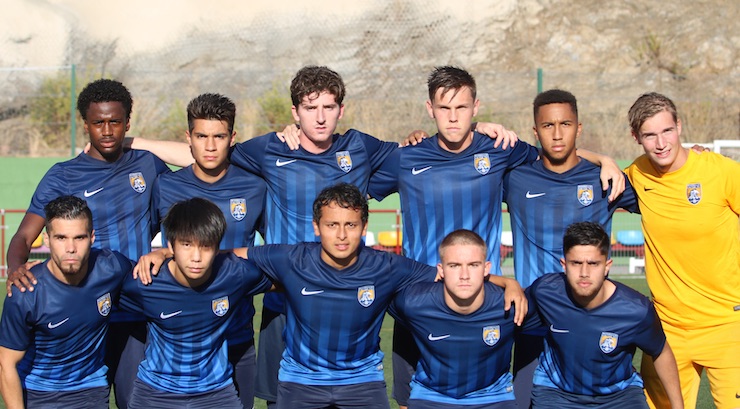
Diane Scavuzzo: What kind of players are you looking for?
Bobby Lennon: We’re looking for a player with ability and one that has the right soccer mentality.
In my opinion, the gap between European football and American soccer is football I.Q. and technical skills.
We have to close the gap between American youth soccer and European footballers, and that takes time, and like any development, it depends on the individual.
If the individual doesn’t have the right mentality, if he isn’t the student of the game, then we’re chasing our tails.
Diane Scavuzzo: When you say “the right mentality”— what do you mean by that?
Bobby Lennon: A player who doesn’t think he’s already arrived. A player that comes to us as a student of the game, commits to his development and makes the proper sacrifices.
Diane Scavuzzo: What is a typical day at Marbella United FC?
Bobby Lennon: We require a player to put in a full day. We have breakfast at 7 AM, followed by tactical training from 8:30 to 10:30, then we go straight into academics and then we either have a technical training session, some type of conditioning or a friendly game in the evening.
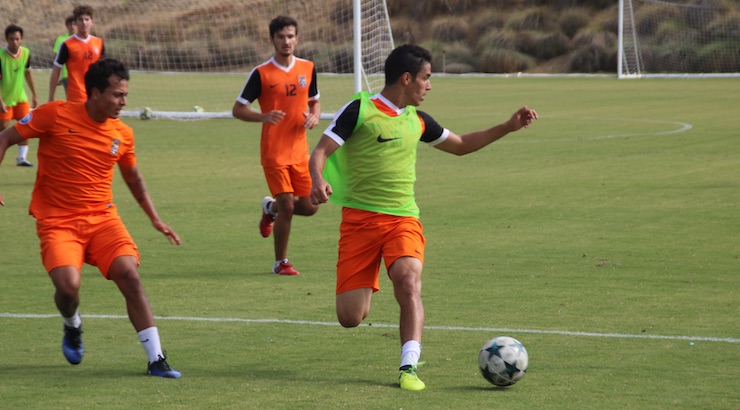
When a player arrives in Spain, we measure their body fat. We give them a drug test. A player has a physical … and we monitor our players carefully. We have a performance coach who oversees the players’ development.
Diane Scavuzzo: What is wrong with youth soccer in America today?
Bobby Lennon: In general, I don’t think today’s generation trains with the ball enough on their own.
What’s missing today is street soccer. It doesn’t exist anymore.
Diane Scavuzzo: How can you develop players and help improve their technique?
Bobby Lennon: We give the guys three technical training sessions per week, and we want them to go train on their own.
We could give them five sessions a week but we don’t want to because we want to see them out training by themselves. We want to get the players enthusiastic and practicing skills on their own.
To complement that, we have the technical training and the football I.Q.
We have a top technical coach from Stoke City and we use the Coerver training.
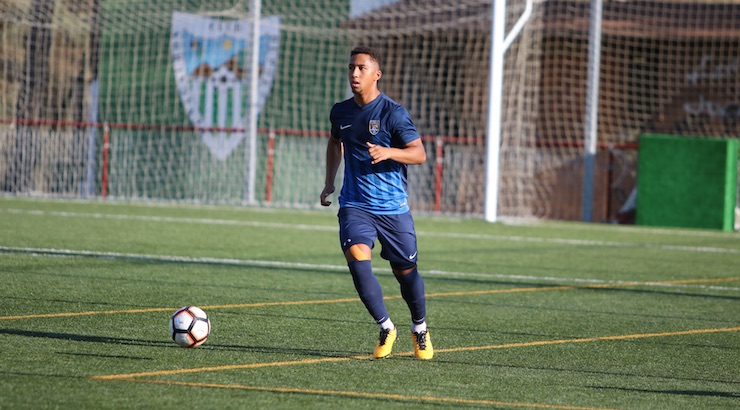
Diane Scavuzzo: How do you scout for players?
Bobby Lennon: I go to different tournaments across the United States. I’ve been to 35 tournaments this year. I went to the Dallas Cup in the Spring and am going to the U.S. Soccer Development Academy Playoffs and Showcase.
I watch in terms of the application of the play, and the anticipation skills, the movement off the ball, what players are doing with their first touch.
As you walk from field to field to field, they all, American teams, almost look the same. What you see is the ball and you see almost everybody ball-watching.
There’s no reading of the game, the vision’s poor — the field awareness, it doesn’t exist.
Diane Scavuzzo: What is the value of training in Spain? Immersing in the Spanish soccer culture?
Bobby Lennon: It is not just the Spanish soccer culture, our facility just happens to be in Spain. Our players are immersed in a European soccer culture, and our coaching staff is from England, Spain, Serbia, Greece, Belgium, and we create opportunities throughout Europe, not just in Spain.
When we bring over an American player, he trains with European players — players from different parts of the world who are better than he is. When you train or play with players who are better, you get better.
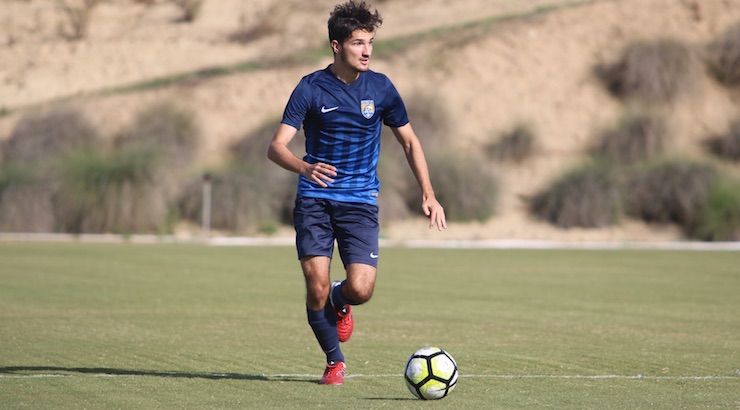
If I put an American next to a Dutch player, he is going to learn. The anticipation skills are more second-nature for the Dutch player than they are for the American player, and there’s nothing better for American players to learn from than their teammates.
Even more so than a coach.
An American player’s going to want to copy what the international player is doing. It’s not peer pressure, it’s looking up to somebody their age, or a couple years older.
Diane Scavuzzo: So what is the best way to raise the level of soccer for American players?
To immerse them in an atmosphere where they can be surrounded by other players their own age from different countries who have a stronger culture soccer and more developed skills?
Bobby Lennon: I think so. And, we need coaches that are going to allow the game itself to teach the players.
The basics of reading the game, and defending are great examples. If I’m a right fullback, I have to maybe mark the left winger. I have to watch the man, I have to watch the ball, and I have to react to both. Now if I’m doing that, this is the beginning of reading the game.
A coach doesn’t need to interfere with this.
At halftime, a coach can help with the decision-making, but he or she doesn’t need to be shouting what a player needs to be doing during the game.
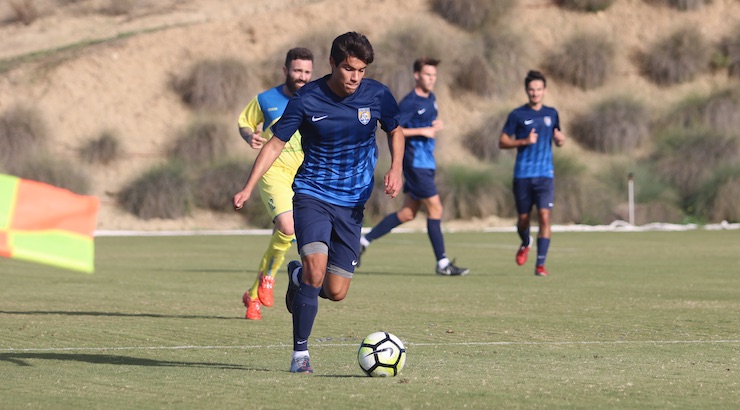
The best way to get American players to play at the next level is to work on their technical side, get the game itself to teach them and put them on the field with better players.
It is important to get them the strongest competition that they can handle. It’s no good if they go out and lose games 0-8 or win 8-0.
Player development happens with heightened competition.
Now, with our first team, we actually have a professional coach who played on the Belgian National team and in the Champions’ League. He has coached Division I soccer in France, China, and at the top three clubs in Africa, plus two national teams. He gets our top players to play the way he wants them to play.
But before we put our 15, 16, and 17-year-olds into that environment, we have to prep them, we have to develop them, because that’s the pressure cooker, and that’s where they’re really starting to play European tactical football.
Before they get there, we’ve got to put them in an environment where we close that development gap.
Diane Scavuzzo: How old are the players who come over to train with you in Spain?
Bobby Lennon: At the youngest, 15-years-old and at the oldest, 23 years — so we have high school and college-age players.
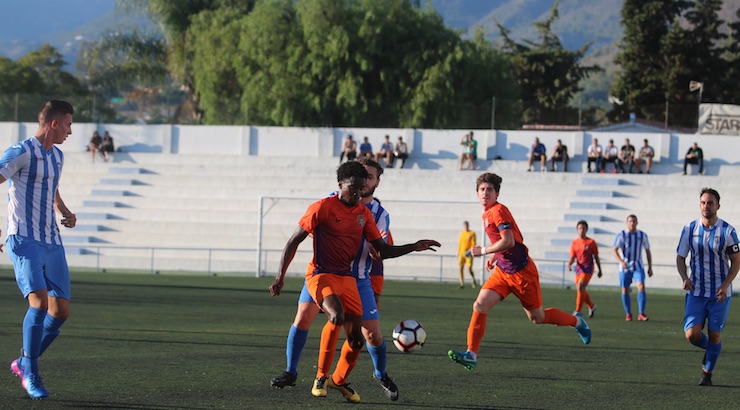
Diane Scavuzzo: How often do you find a player that’s talented enough to be able to earn a professional contract at a European club?
Bobby Lennon: Last year, we had one player who is American play second division in Greece and now he’s playing in Germany.
This year, we have eight players trying out with Division III to Division I clubs. We have one player who has just returned from a trial in France, and he didn’t make it because they already had three left fullbacks, but he’s going to a Division I club in Belgium. We send players to Norway, Romania, Ukraine, Greece, Spain, France, and Belgium among other countries.
Diane Scavuzzo: The players at Marabella United FC come from a variety of MLS DA and other academies?
Bobby Lennon: Yes.
Diane Scavuzzo: Are your players normally from the Development Academy? Are you interested in having non-DA players from soccer clubs apply? How do you choose your players?
Bobby Lennon: I think at the beginning of any program, and we just finished our third year, you take as many players who want to come, and then as time goes on, you become more selective.
We don’t take just Developmental Academy players, we want to look at any player who comes from a good football environment that has the right mentality, and shows potential. That’s what we’re looking for right now.
I have a team of scouts that go out and watch players.
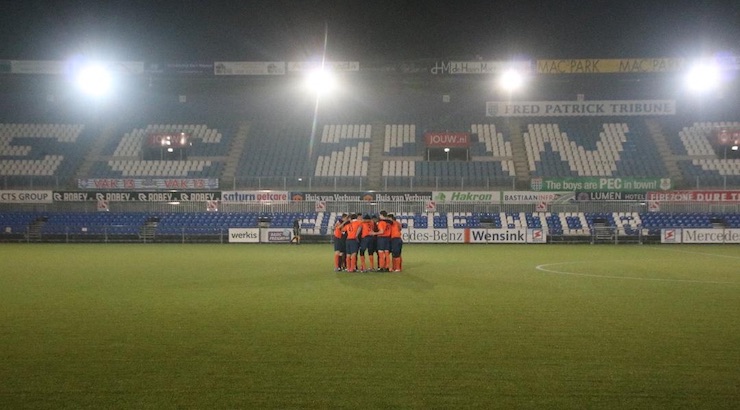
Diane Scavuzzo: If a player wants to try out, they could try to reach out to you to have you come to watch them?
Bobby Lennon: Yes and we’re going to start doing youth soccer combines next year.
Diane Scavuzzo: If you send a player on a trial in France or Germany, for example, who pays that expense?
Bobby Lennon: They do but if they sign a contract the club reimburses the player’s expenses.
Diane Scavuzzo: If a player is signed by a team in the 3rd tier of the Bundesliga, for example, do you serve as the agent, helping them with the contract?
Bobby Lennon: Yes, we help the player through the process. If a player starts making six figures, then we’ll get involved with that side. Right now, we’re sending our players to these Division III, Division IV clubs because now they have European coaches, they have European teammates, and they’ve got European competition. That’s the American player’s next-level development.
While they train and play on this next level of development, they’re continuing their online school and perhaps they’re making maybe a thousand Euros a month and they have a roof over their head.
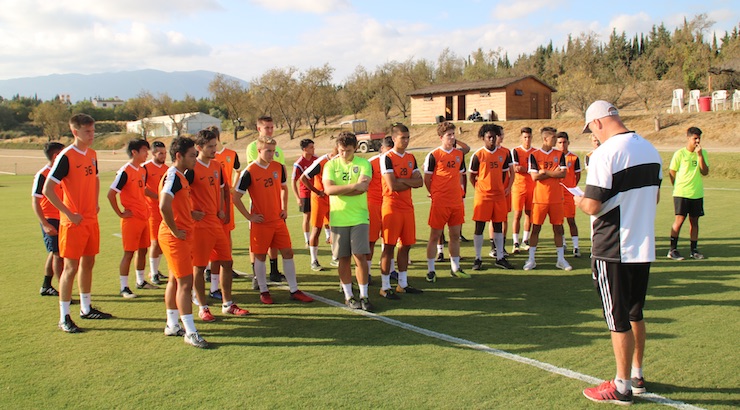
Diane Scavuzzo: And, they’re playing soccer in Europe.
Bobby Lennon: Yes, and then it is about getting them to the next level. For example, our 18 and 19-year-old soccer players, we send them to Division I clubs for trials, if they have the ability, of course.
If the club is interested, they’re going to place them in the under-19 program, or send them to a Division III club to watch them for six months. If the club likes them, they will decide if they want to keep them or sell them, and if they don’t like them, they will send them back to us.
That’s an experience. You come to Marbella, you get out of Marbella.
Diane Scavuzzo: I love it, that is a great line.
Bobby Lennon: You come to develop and get exposure, and who the players have to impress isn’t so much the scouts, they have to impress their own coaches.
Your own coach knows you more than a scout does, watching you in one or two games.
Our coaches come from professional clubs, so when they go talk to their circle of people, they’re trusted, and they know they’re telling the truth, and they’re not doing a sales job.
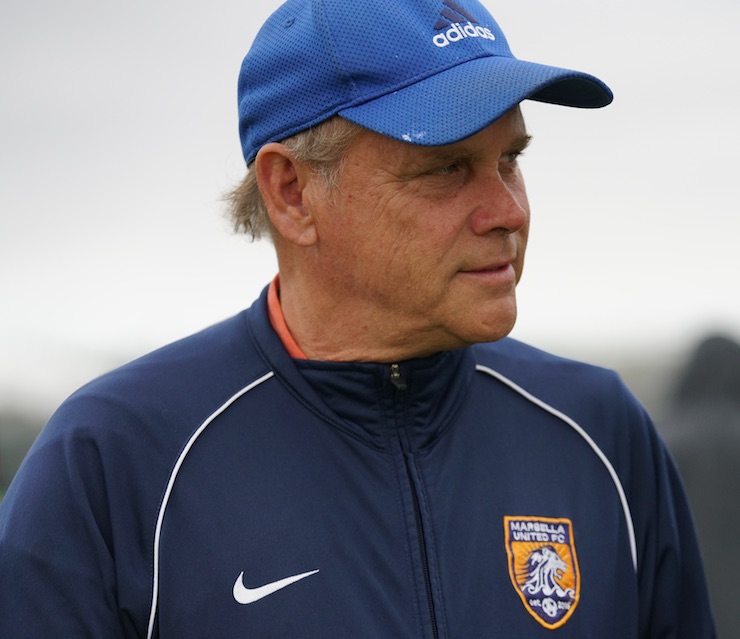
Our players have to conduct themselves a certain way off the field — they have to keep up with their apartment, they have to eat correctly, they have to get eight hours sleep a night, and if they’re not doing that, we know it. Even a player isn’t being responsible and doing this, even if the kid deserves the opportunity if his behavior off the field isn’t professional enough, he doesn’t get the opportunity.
A professional club in Europe is only going to take our player if he’s better than what they already have.
These European clubs are not going to put out the effort of the visa and go through the non-European process if the player isn’t better.
We’re trying to develop Americans to do things the correct way, and you can teach old dogs new tricks if the old dog has an open mind and if he really wants it.
Right now, we have a handful of players who want to do this, and the rest, maybe soccer’s a serious hobby, and it’s not a true passion like they say it is.
We’re looking to grow our program to where everybody has the same soccer mentality.





